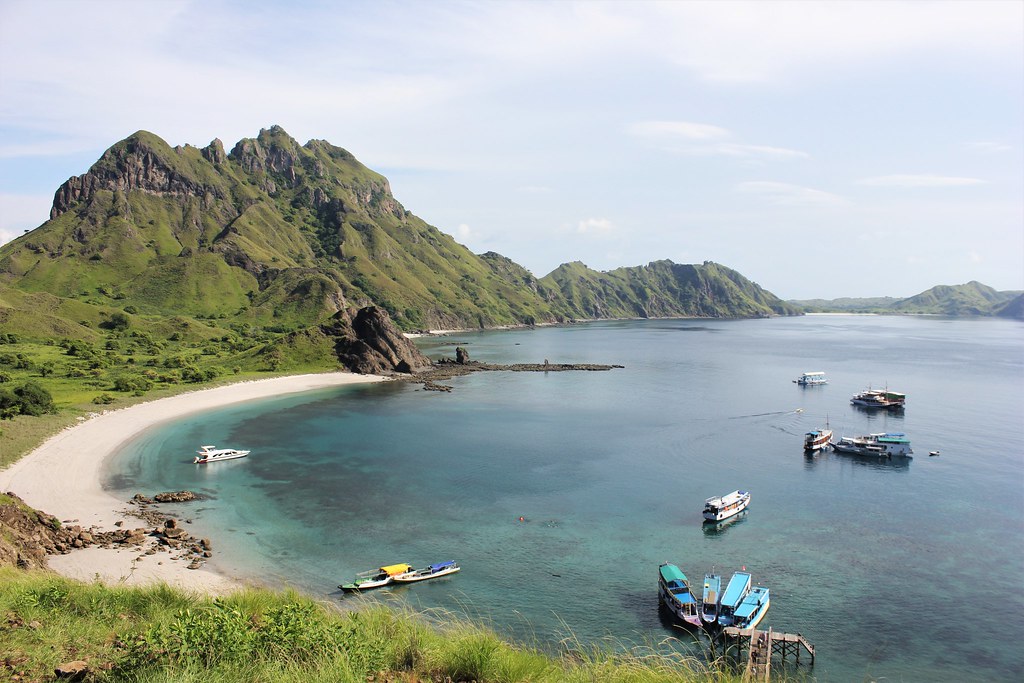In dragons vs. tourists fight, Indonesian villagers to lose out

- Country:
- Indonesia
Thousands of residents of an island in eastern Indonesia are resisting a government plan to relocate them and close the island next year in a bid to conserve rare Komodo dragons.
Last week, Indonesian authorities said the island of Komodo would be closed next year to allow for the recovery of the reptiles and the Komodo National Park, the only habitat for the world's largest lizard species. About 2,000 people would also be moved off the island, and risk losing their homes and livelihoods, said Gregorius Afioma, director of human rights group Sunspirit for Justice and Peace.
"These are people who had already lost their land to the park and suffered as authorities prioritised tourism. Now they will lose again," he told the Thomson Reuters Foundation on Wednesday. "They have not benefited much from the tourism boom, and with the relocation, they will be isolated even more, despite evidence that local people help conservation efforts."
Globally, there is a growing awareness - and backlash against - the negative impacts of tourism, from environmental damage to the destruction of neighbourhoods as local residents are priced out. Poorer countries in Southeast Asia are particularly ill-equipped to limit the "invisible burden" of over-tourism, according to a report earlier this year from The Travel Foundation charity in Britain.
Growing tourist numbers forced authorities in Thailand last year to close a beach made famous by the Leonardo DiCaprio film "The Beach" to give its ecosystem time to recover. The Philippine holiday island of Boracay also shut for a clean-up last year after the president raged it had become a "cesspool" and warned of an environmental disaster.
But shutting down destinations is not the right approach unless it is an ecological emergency, said Megan Epler Wood, director of the International Sustainable Tourism Initiative at Harvard University. "Relocation of villagers is a drastic act," she said.
Instead, the system should be revamped to "build local communities into the revenue generation process, and manage tourism flows," she said via email. Komodo National Park, a conservation area between the islands of Sumbawa and Flores, drew more than 176,000 tourists from across the world last year.
The park, a World Heritage Site, is home to more than 4,500 dragons which can grow to up to 3 metres in length. It has seen a steady uptick in visitors as cruise ships made stops and a nearby airport was upgraded.
Visitors have worsened pollution, damaged the ecosystem and driven up land prices, forcing local residents to abandon farming and make a living from selling souvenirs, said Cypri Jehan Paju Dale, a researcher on Indonesia at Bern University. Indigenous residents, who have held protests against the shutdown and relocation plan, had ensured a "harmonious relationship of humans and animals" for hundreds of years, he said.
Plans to promote the park as a premium tourist destination would further hurt the community and conservation efforts, he said. "The irony is that while the local community is relocated in the name of conservation, the park is exposed to the tourism business, with the economic benefits going to only big national and trans-national firms," he said.
Also Read: UP: Authorities prevent 25 Dalit families from converting religion in Budaun
(This story has not been edited by Devdiscourse staff and is auto-generated from a syndicated feed.)
ALSO READ
Rescue Mission: Stranded Tourists Saved from Sikkim's Snowfall
Nathula Visit Restrictions: New Year 2025 Plans for Tourists
Cyber Fraud Surge Hits Bihar: Southeast Asian Links Unveiled
Surge in Tourists at Taj Mahal: Agra’s Response Strategy for New Year
Tourists Flock to Uttarakhand's Snowy New Year Destinations










